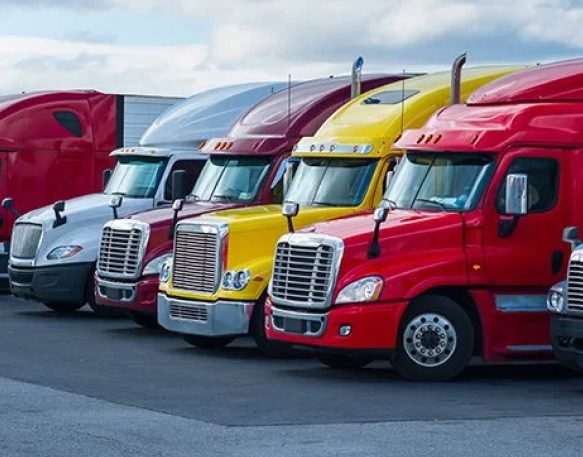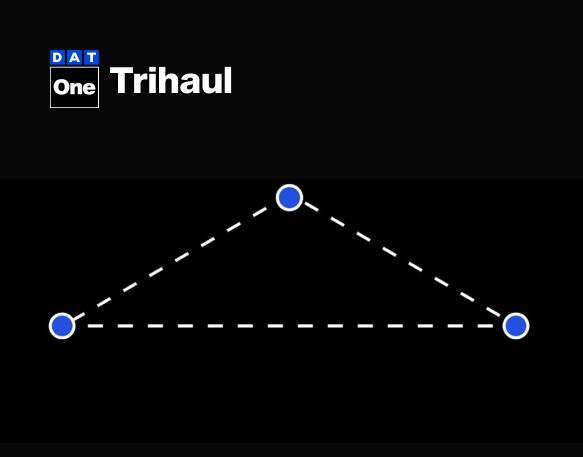With thousands of miles to travel on any given day, anything can happen. Cargo insurance plays a vital role in protecting freight and mitigating risks against the unpredictability of the open road. Whether accidents, theft, natural disasters, or other unforeseen circumstances impact your service, cargo insurance ensures that the value of your cargo is protected. Without this insurance, carriers risk significant financial liabilities, including legal costs and compensation payments, which could severely impact their bottom line.
Not only does cargo insurance provide coverage against lost or damaged goods, but the Federal Motor Carrier Safety Administration (FMCSA) also requires most carriers to have some form of cargo insurance and liability insurance. Beyond FMCSA requirements, some clients additionally require carriers to have adequate insurance for the goods they transport. Failure to meet these requirements, both regulatory and contractual, can result in penalties, reputational damage, and even loss of business.
Cargo loss or damage can have serious consequences for a freight carrier’s reputation. Clients rely on carriers to deliver their goods safely and securely, and any failure to do so can tarnish the carrier’s reputation and erode trust with clients. Cargo insurance helps mitigate this risk by providing financial compensation in the event of loss or damage, thereby protecting the carrier’s reputation and maintaining trust with clients.
Finally, cargo insurance provides a safety net for carriers to mitigate the inherent risks associated with transportation. This ensures the carrier’s financial stability and resilience, even in the face of unforeseen events that could otherwise result in significant losses. By recognizing the importance of cargo insurance and incorporating it into their operations, freight carriers can better safeguard their interests and meet the needs of their clients effectively. In this article, we will explore cargo insurance and how carriers can choose the best plan for their needs.
Insurance coverage types
Insurance is a crucial safety net for carriers and shippers alike, so it’s no surprise that there are a variety of insurance policies and types on the market to protect freight industry professionals from risk. In this section, we delve into several types of insurance coverage available to freight carriers, exploring how each type addresses specific risks and safeguards the interests of carriers involved in the transportation process.
Comprehensive insurance
Comprehensive insurance is a type of coverage that offers broad protection against a wide range of risks associated with transporting goods. Unlike specific types of insurance that may only cover certain perils or circumstances, comprehensive cargo insurance provides more extensive coverage, offering financial protection in various scenarios.
This type of insurance typically covers loss or damage to cargo caused by non-collision accidents, theft, natural disasters, fire, vandalism, and other unforeseen events during transportation. Comprehensive insurance is designed to provide peace of mind for freight carriers by mitigating the financial risks associated with transporting goods over long distances or through diverse environments. It is an essential component of risk management strategies for carriers operating in the complex and dynamic world of freight transportation.
Named peril
Named peril insurance is a type of coverage that only covers the specific risks or “perils” explicitly listed in the insurance policy. Named peril insurance helps carriers mitigate the financial risks associated with known hazards or perils that are prevalent in their operating environment, like theft, vandalism, or fire. This type of policy allows carriers to protect themselves against the financial consequences of these events without having to bear the full burden of the losses themselves.
Because this is a narrowly tailored insurance policy, it can be more cost-effective to have coverage over specific, probable risks instead of broader policies that may include irrelevant or extraneous coverage. With named peril insurance, carriers have clarity and transparency regarding the risks that are covered under the policy and know exactly what types of incidents are eligible for compensation, reducing ambiguity and potential disputes in the event of a claim. By obtaining named peril insurance, carriers can safeguard their interests and protect themselves against the financial implications of specified perils that may arise during the transportation of goods.
Cargo-specific policies
Commercial Cargo Insurance: Commercial cargo insurance provides protection for goods or cargo during transit. DAT’s commercial cargo insurance offerings provide all-risk, per-load commercial freight insurance thanks to our partnership with Loadsure. Loadsure offers expedited claims payouts, dynamic pricing, and comprehensive door-to-door coverage ensuring peace of mind for every load you transport.
Motor Truck Cargo Insurance: Motor truck cargo insurance, also referred to as cargo insurance, offers insurance coverage for the freight or commodities transported by carriers. It includes coverage for your liability in case the cargo is lost or damaged due to events such as fire, collisions, or incidents involving the striking of a load. With DAT Loadsure’s motor truck cargo insurance, carriers can meet their cargo legal liability needs easily and file claims quickly via the DAT One mobile app.
Cargo Liability Insurance: Cargo liability insurance covers the specific load you’re hauling and does not extend to the equipment used to do the hauling. It protects the transportation company and its obligation to compensate you for any loss of cargo. Cargo liability insurance offers financial security in cases where the transportation company is deemed responsible for compensating you due to loss or damage to the goods during transit. Cargo liability insurance offered through Loadsure, one of DAT’s insurance partners, helps carriers limit their exposure, earn confident customers, and save up to 80% on their insurance bills.
Risk Assessment
When determining the appropriate insurance policy for your operations, evaluating potential threats and vulnerabilities that could impact the safety, security, and integrity of the cargo during transit is a must. Start by identifying the specific risks your business faces, including both internal and external risk factors, as well as vulnerabilities within your transportation process. Then, evaluate the likelihood or probability of each identified risk occurring and its potential impact on your cargo transportation operations. Use historical data, industry trends, geographic location, cargo value, mode of transportation, and the overall vulnerability of the supply chain infrastructure to inform this evaluation.
From there, prioritize the identified risks based on their likelihood and potential impact on your cargo transportation. Focus on risks that are most likely to occur and have the highest potential for causing significant losses or disruptions to operations. A gap analysis, or running mock scenarios, could even be helpful as you can use these tools to identify discrepancies between the current risk management procedures you have and your desired risk management objectives. Consider various scenarios, such as accidents, natural disasters, security breaches, supply chain disruptions, and regulatory violations to evaluate the effectiveness of your existing risk mitigation measures and identify additional measures needed to mitigate each scenario.
Finally, document the results of your risk assessment process. You can then use these results to determine the appropriate insurance coverage needed to mitigate identified risks and protect your interests. This may include selecting specific insurance policies such as comprehensive insurance, cargo liability insurance, or specialized coverage for specific risks such as theft or natural disasters. Regular review and updates to the risk assessment are essential to ensure that insurance coverage remains aligned with evolving threats and vulnerabilities.
Benefits of cargo insurance
Cargo insurance provides financial protection and peace of mind while safeguarding against the various risks you may encounter on the road. Here are the key benefits of utilizing a cargo insurance policy:
Safeguarding Against Loss and Damage: Cargo insurance provides coverage for loss or damage to goods during transportation. It protects against risks such as accidents, theft, vandalism, natural disasters, and mishandling. This safeguard ensures that the value of the cargo is protected, reducing the financial impact of unforeseen incidents on carriers and shippers.
Liability Protection: Cargo insurance shields carriers from liability for loss or damage to cargo during transit. It covers the costs of compensation and legal expenses in the event of claims from the cargo owner or other parties affected by the loss or damage. This liability protection helps carriers avoid bearing the full financial burden of claims and lawsuits, preserving their financial stability.
Financial Protection: Cargo insurance offers financial protection by providing compensation for loss or damage to cargo. It ensures that carriers can recover the value of the goods and any associated costs, such as freight charges, customs duties, and storage fees. This financial support helps mitigate the impact of cargo losses on business operations and cash flow, minimizing disruptions and losses.
Risk Management: Cargo insurance is a crucial component of risk management. It allows carriers to transfer the financial risk associated with transporting goods to insurance providers, reducing their exposure to potential losses. By obtaining insurance coverage, carriers can protect their interests and focus on their core business activities without worrying about the financial implications of unforeseen incidents.
Peace of Mind: Knowing that their cargo is adequately insured provides carriers and shippers with peace of mind. They can have confidence that their goods are protected against various risks during transit, allowing them to conduct business with assurance and certainty.
Considerations for choosing cargo insurance providers
When considering options for cargo insurance providers, carriers and shippers should prioritize brands that provide high-quality coverage, reliable service, and demonstrate a commitment to customer satisfaction. There are a lot of options out there, but only DAT’s partner Loadsure delivers on each of these buckets by providing exceptional offerings and dedication to meeting the needs of its clients.
High-Quality Coverage: Loadsure distinguishes itself by providing door-to-door coverage on a variety of loads, including specialty loads. Loadshare safeguards against a wide range of risks, including theft, mishandling during transit, and Acts of God. With Loadsure, carriers and shippers can have confidence that their cargo is adequately protected against these unforeseen incidents, ensuring peace of mind throughout the transportation process.
Reliable Service: Another crucial factor to consider when selecting a cargo insurance provider is the reliability of their service. Loadsure sets itself apart by offering dependable, per-load, all-risk coverage insurance policies. With Loadsure, you not only attain immediate peace of mind but also benefit from swift claims payouts, flexible pricing, and additional perks. While other motor insurance carriers are fickle with what they cover and when, Loadsure has your cargo covered across its route.
Commitment to Customer Satisfaction: Loadsure recognizes that cargo insurance isn’t a one-size-fits-all solution, that’s why it prioritizes customer satisfaction by offering personalized support, transparent communication, and flexible solutions tailored to the unique needs of each client. Using the power of artificial intelligence, machine learning, and real-time data, Loadsure provides dynamic pricing and competitive rates, enabling carriers to save costs by up to 80%. What’s more, Loadsure’s digital platform simplifies the process of submitting insurance claims. Finally, Loadsure’s extensive distribution network facilitates faster settlements—eliminating the need to wait months for necessary funds—leading to satisfied customers who can focus on what matters most.
Choosing the best cargo insurance provider
Safeguarding your cargo with Loadsure’s insurance coverage offers unmatched peace of mind and reliability for your freight transportation needs. With dynamic pricing, swift claims processing, and a user-friendly digital platform, Loadsure empowers carriers to protect their valuable cargo efficiently and effectively. Don’t leave your shipments vulnerable to unforeseen risks—choose Loadsure and ensure the safety and security of your freight.
Secure your freight with Loadsure’s extensive cargo insurance protection
Take control of your cargo insurance experience with Loadsure, DAT’s trusted partner. Gain competitive rates, simplify your claims process, and only pay for what you need when you utilize Loadsure’s per-load, end-to-end coverage solutions. Thanks to Loadsure’s digital platform, carriers can access coverage within seconds while on the road, and receive faster claims payouts as well. Sign up today and get back to business.




